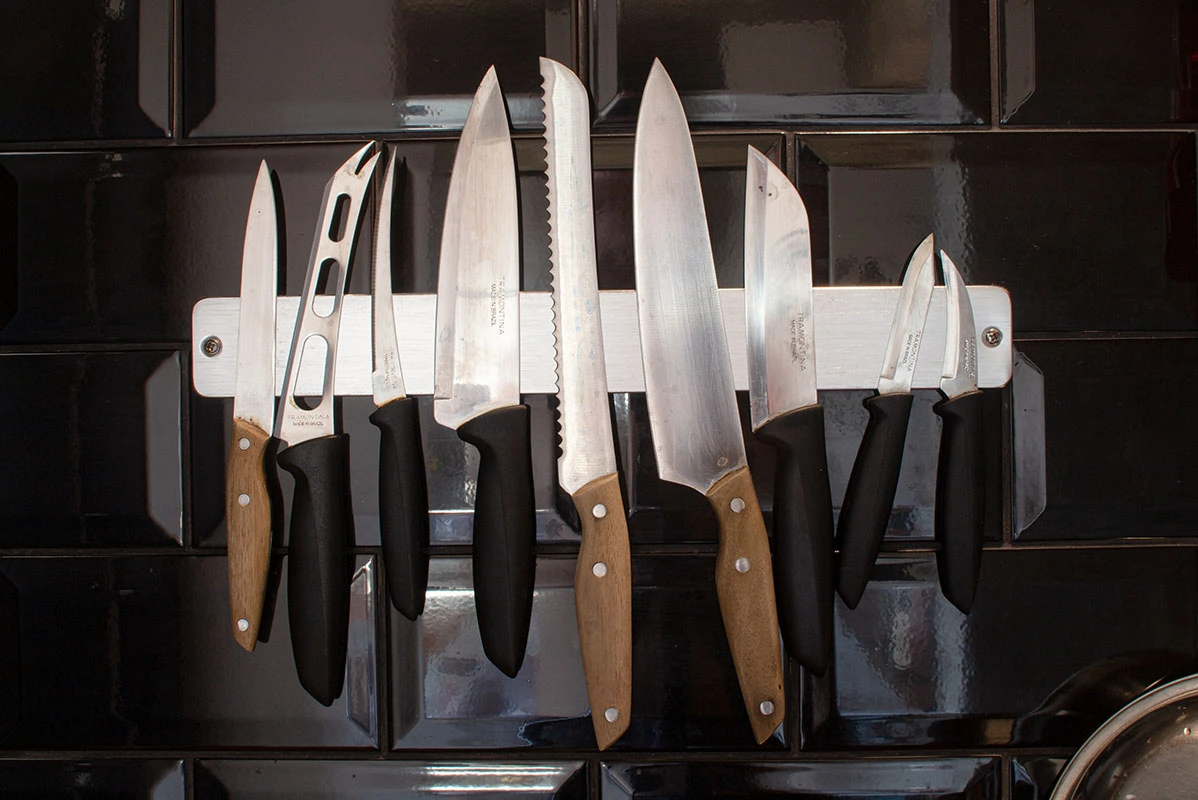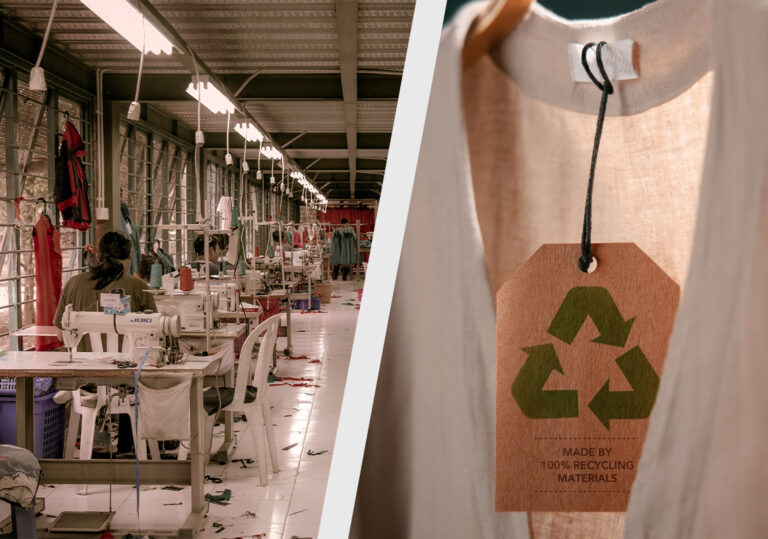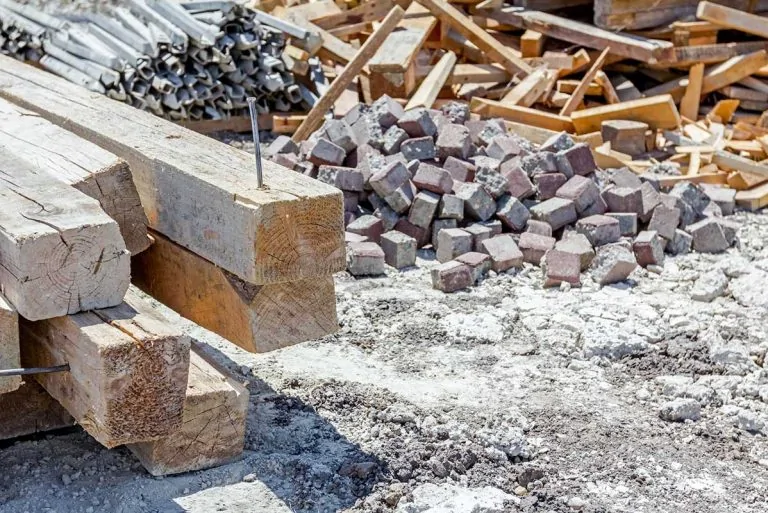The world is starting to pay attention to how much single-use plastic and other disposable waste we toss into landfill and allow to pollute the natural environment. Cutting back on this kind of waste can go a long way, but what about household items like knives? Everything wears out eventually, so it’s important to know how to dispose of kitchen knives.
How to dispose of kitchen knives responsibly
Simply tossing your unwanted kitchen knives in the trash could put sanitation workers at risk, not to mention contribute needlessly to landfill and damage the environment. However, if you’re looking for how to dispose of kitchen knives, there are plenty of ways to get rid of these items while protecting people and the planet.
Before you dispose of them – could they be repaired?
Similarly to recycling cookware, before you get carried away and dispose of your damaged or dull knives, you may be able to repair them instead. This will not only help you to minimize the waste you produce, but it will also save you a lot of money in the long run – after all, good-quality knives can be pretty pricey!
If your knife is simply dull, you can probably resolve this yourself with a good knife-sharpener. A professional can also help you repair the handle, fix any dents or scratches, or buff out small chips in the blade.
Sharpening a dull blade is reasonably easy to do, while repairing a knife with large chips or a broken blade is much more challenging. While professionals can hammer out chips, there is some damage that simply can’t be repaired.
The best thing to do is take your knife to a specialized repair shop or retailer and see what they can do!
Maintaining your knives properly will also go a long way to ensure you don’t need to replace or even repair them too often.
Follow these tips to extend the life of your kitchen knives:
- Clean and dry your knives immediately after use
- Polish and sharpen them regularly to stop the blade from becoming dull, but don’t sharpen already sharp knives
- Don’t use them to cut things they’re not designed for, such as plastic or frozen food
- When not in use, place them in a knife block or hang on a magnet block – don’t toss them all in a drawer together
- Store them in a clean, dry spot to avoid mold growth
Give old kitchen knives away
The easiest method for how to dispose of kitchen knives, if they are still in good condition, is to simply send them to a new home. You may have some knives that are still perfectly usable but you want to upgrade your collection or simply downsize.
In this case, you could donate them to:
- A friend or family member who is setting up a house
- Local charities such as soup kitchens
- Goodwill or Salvation Army stores
Not all organizations will take donations of knives, so be sure to check with them before dropping them off.
If you decide to leave your old knives at a drop-off point after checking the organization will accept them, wrap them carefully first in cardboard or newspaper and then place them in a sturdy, sealed box. Be sure to clearly label the box “knives” or “sharp”.
You could also list your old knives on Freecycle or look for a local giveaway group on Facebook.
Sell your old kitchen knives
If you have quality knives in good condition that you want to get rid of, you may be able to sell them. This way, you’ll keep them out of the waste stream while earning some cash at the same time!
There are plenty of sites that let you sell household goods for a decent price, such as:
- eBay
- Craigslist
- Facebook Marketplace
- Nextdoor
To maximize the price you get for your knives, be sure to create a strong listing that includes photos, as well as a full description, brand, and where the knife was made. Also be sure to check local laws about selling and shipping knives, as there are restrictions on this in some areas.

You may even be able to sell chipped or broken knives to someone who either plans to repair them or use them for scrap metal. You could list damaged knives on any of the sites listed above – just be honest about their condition – or contact local scrap metal dealers.
Recycle old kitchen knives
Knives, like most other metal items, are readily recyclable thanks to the value of this type of material. They can be used to make new products, from tools to new kitchen knives.
Most scrap metal recyclers will accept old knives – you can check if there’s a facility in your area by searching on Earth911’s online finder tool. Get in touch with the recycling center and ask them if they’ll take your old knives.

However, you’ll need to know what the knife is made of as most recyclers only accept certain metals. Knives can be made from a range of materials, including ceramic, aluminum, titanium, stainless steel, and carbon steel.
However, usually, you’ll just need to tell them whether it is a ferrous or non-ferrous metal. You can check this by holding a magnet up to the blade – if it sticks, it’s made from ferrous metal.
Here’s how to recycle knives through a recycling center:
- Go to Earth911’s online finder tool and enter your zip code, along with metal as the type of material you want to recycle.
- Ask them how to prep the knife for recycling. Because handling sharp items can be dangerous, they’ll probably have specific requirements for any blades.
- Prepare the knife according to their instructions.
- Drop it off at the recycling center.
Amnesty drops at your local police station
Local police forces sometimes run amnesty drives for old knives, though these may or may not cover kitchen knives. In the UK, they even have “knife amnesty” bins at many local police stations.
Get in touch with your local police station to see if they run such a program, and when the next drop off date and location is.
Throw them in the trash (sometimes… and only as a last resort)
You should toss your old knives in the trash only as a last resort.
Kitchen knives can be a wide range of metals, including lead, aluminum, nickel, and chrome. Once in landfill, these toxic metals can leach into the soil and waterways.
Additionally, some knives are coated with toxic paints and chemicals which can pollute the environment in similar ways as well as pose a risk to human health.
Furthermore, throwing these precious metals away is a waste of natural resources. Not only does the earth have a finite amount of metals, but mining has a range of negative impacts on the environment, including destroying natural habitats, soil and water contamination by chemicals and fuels, and air pollution.

Depending on where you live, it may also be illegal to throw knives and other sharps in the trash. So the first thing you should do is contact your local authority and check the rules in your area.
Even a blunt knife could damage a sanitation worker if you toss it in the trash without taking the proper precautions first. Therefore if you absolutely must (and can legally) throw your old knives in the trash, be sure to wrap them first.
The best way to do this is with a piece of cardboard more than twice the width of the blade of your knife. Fold the cardboard in half and place it around the knife blade, with the sharp side buried in the fold.
Secure the cardboard around the knife with duct tape. Finally, put the knife in a box and seal it with tape just in case.
You should also write “sharp” or “warning” on the outside of the box to make sure sanitation workers handle it with care.
FAQs
Properly disposing of your kitchen knives can be a bit tricky, so we’ve answered some of the most frequently asked questions on the topic below.
How can I dispose of my old kitchen knives safely?
The best way to deal with old kitchen knives is to repair them if possible. If they’re in good condition, you could also consider selling or donating them.
If none of these options are viable, you should take them to a recycling center that accepts scrap metal. Only throw knives in the trash as a last resort and, if you do, ensure that you prepare them properly first.
How should I prepare knives for proper disposal?
Whether giving kitchen knives to a recycling center, throwing them in the trash, or donating them through a drop off center, it’s important to prepare them for proper disposal. The first thing you need to do is cover the blade so that it won’t cut anyone handling the knife.

The best way to do this is by wrapping it in cardboard and securing it with tape, though you can also use newspaper. Then, put the wrapped knife in a sealed box, and write “knife”, “sharp”, or similar on the outside in large, bold letters.
Can I put old kitchen knives in the trash?
This depends on where you live. In some municipalities, it’s illegal to throw knives in the trash, while it’s ok to do this in others as long as you handle them properly.
Check with your local sanitation department and if they confirm that you can throw knives in your trash, prepare them first following the instructions above. However, it’s best to seek other options such as recycling, donating, or repairing the knives before tossing them away.
How often do kitchen knives need to be replaced?
There’s no hard rule as to how often you should replace your knives. Good-quality knives that are well maintained can literally last a lifetime.
However, there are certain signs that indicate it’s time to replace a knife including:
- The tip is bent or broken
- There are large chips in the knife blade
- The rivets securing the blade to the handle are loose
Dispose of your kitchen knives safely
Safety is a key consideration when disposing of old knives, but there are plenty of ecological concerns too. Knowing how to dispose of kitchen knives will mean you can get rid of them without posing a safety risk or damaging the environment.
You may be able to repair your old knives if they are simply dull or chipped, meaning you don’t need to dispose of them at all. Otherwise, responsible options include recycling, selling, or donating them
If you’ve enjoyed this article, go ahead and share it with your friends and family so they can learn how to live a more eco-friendly lifestyle.













